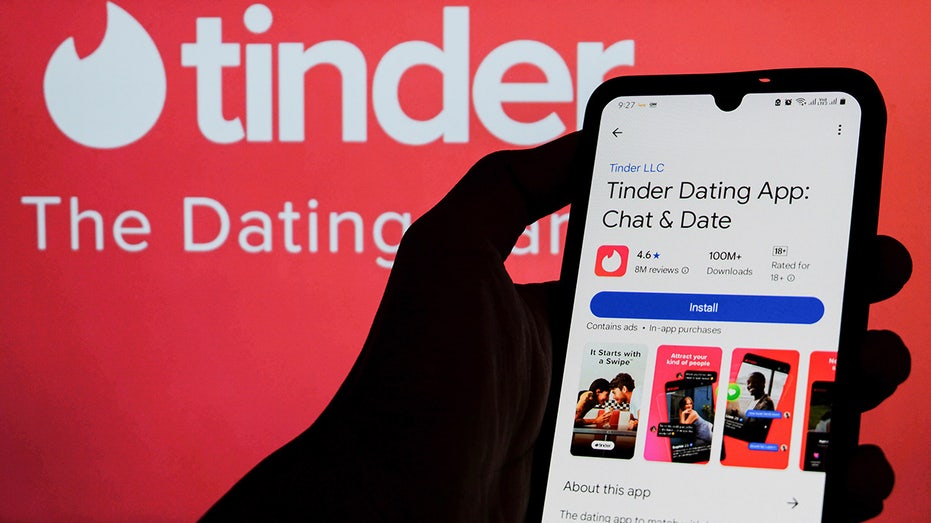Top Stories
Gen Z Men Fear Dating as Viral Culture Creates ‘Cold War’

UPDATE: A new trend reveals that many Gen Z men are increasingly hesitant to date, driven by a pervasive fear of being filmed and ridiculed in the age of social media. This phenomenon has sparked what some are calling a “Cold War” between the sexes, as young men navigate a dating landscape fraught with anxiety over public scrutiny.
In a recent interview with Dr. Nicole Saphier on Fox & Friends Weekend, the alarming concerns of this demographic were brought to light. Eli Thompson, a recent high school graduate, expressed that many of his peers feel “scared” to engage in dating, fearing that even a casual interaction could be documented and shared online. “Normal interactions feel risky,” Thompson stated, highlighting a significant shift in how young men approach romance.
The influence of social media platforms like TikTok and Instagram is undeniable, with women often sharing their dating experiences through various formats, from “get ready with me” videos to dinner recordings. This trend has contributed to a growing sense of mistrust among young men, as they feel their actions could be misinterpreted or mocked. “It’s fueling mistrust in many young men and turning interactions into battlegrounds,” Thompson explained.
The implications of this cultural shift are profound. Research indicates that 37% of Gen Z individuals identify as celibate, with 68% of men citing factors like inflation as deterrents to dating, while 64% of women blame political differences. The fear of embarrassment is so pervasive that Thompson noted it can lead young men to “second-guess every word or message, wondering how it might be judged, shared, or mocked.”
Thompson’s observations resonate widely, as many men across social media platforms echo similar sentiments. The constant threat of online exposure has created a culture where empathy is scarce, and social interactions are increasingly defensive. “This creates an unchecked culture of humiliation,” he warned, emphasizing the urgent need for accountability in digital interactions.
“Cruelty behind a screen is no less harmful than cruelty in person, and we need to send that message loud and clear,”
Thompson argued, calling for a collective reassessment of how young people engage with one another online.
As this conversation gains traction, experts stress the importance of addressing these challenges to foster healthier relationships among Gen Z. The consequences of viral culture and public shaming are leading to deeper divisions between genders, making it essential for society to re-evaluate the impact of social media on romantic relationships.
For now, the question remains: how will Gen Z navigate the intertwining worlds of dating and social media without losing trust and connection? With many young men feeling isolated and vulnerable, the future of dating could depend on creating safer, more respectful environments both online and offline. The urgency for change is palpable, and action is needed to bridge this growing divide.
-

 Sports3 weeks ago
Sports3 weeks agoSteve Kerr Supports Jonathan Kuminga After Ejection in Preseason Game
-

 Top Stories1 week ago
Top Stories1 week agoMarc Buoniconti’s Legacy: 40 Years Later, Lives Transformed
-

 Science3 weeks ago
Science3 weeks agoChicago’s Viral ‘Rat Hole’ Likely Created by Squirrel, Study Reveals
-

 Politics3 weeks ago
Politics3 weeks agoDallin H. Oaks Assumes Leadership of Latter-day Saints Church
-

 Business3 weeks ago
Business3 weeks agoTyler Technologies Set to Reveal Q3 2025 Earnings on October 22
-

 Lifestyle3 weeks ago
Lifestyle3 weeks agoKelsea Ballerini Launches ‘Burn the Baggage’ Candle with Ranger Station
-

 Lifestyle3 weeks ago
Lifestyle3 weeks agoDua Lipa Celebrates Passing GCSE Spanish During World Tour
-

 Entertainment3 weeks ago
Entertainment3 weeks agoZoe Saldana Advocates for James Cameron’s Avatar Documentary
-

 Health3 weeks ago
Health3 weeks agoRichard Feldman Urges Ban on Menthol in Cigarettes and Vapes
-

 Health3 weeks ago
Health3 weeks agoCommunity Unites for Seventh Annual Mental Health Awareness Walk
-

 World3 weeks ago
World3 weeks agoD’Angelo, Iconic R&B Singer, Dies at 51 After Cancer Battle
-

 Business3 weeks ago
Business3 weeks agoMLB Qualifying Offer Jumps to $22.02 Million for 2024









